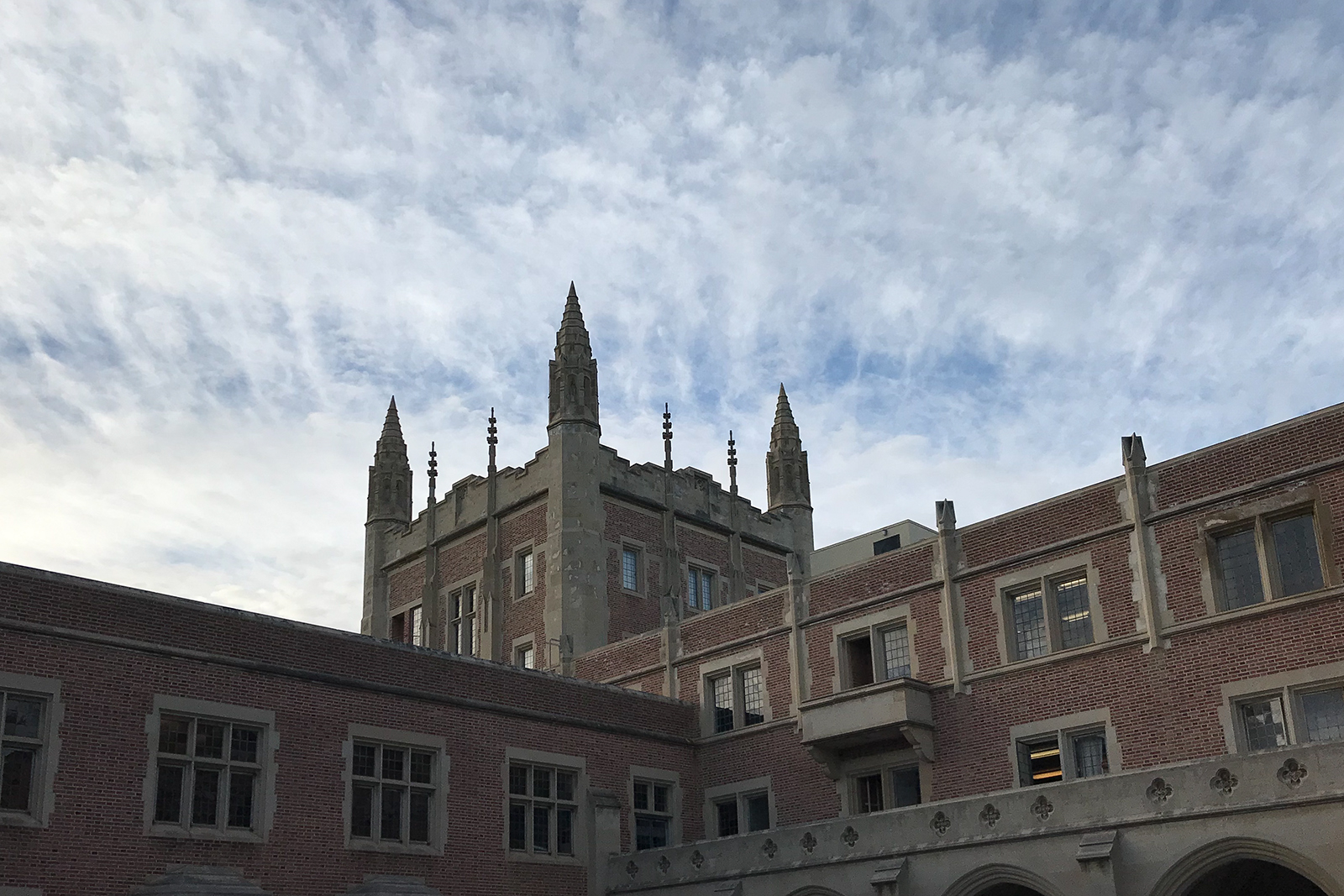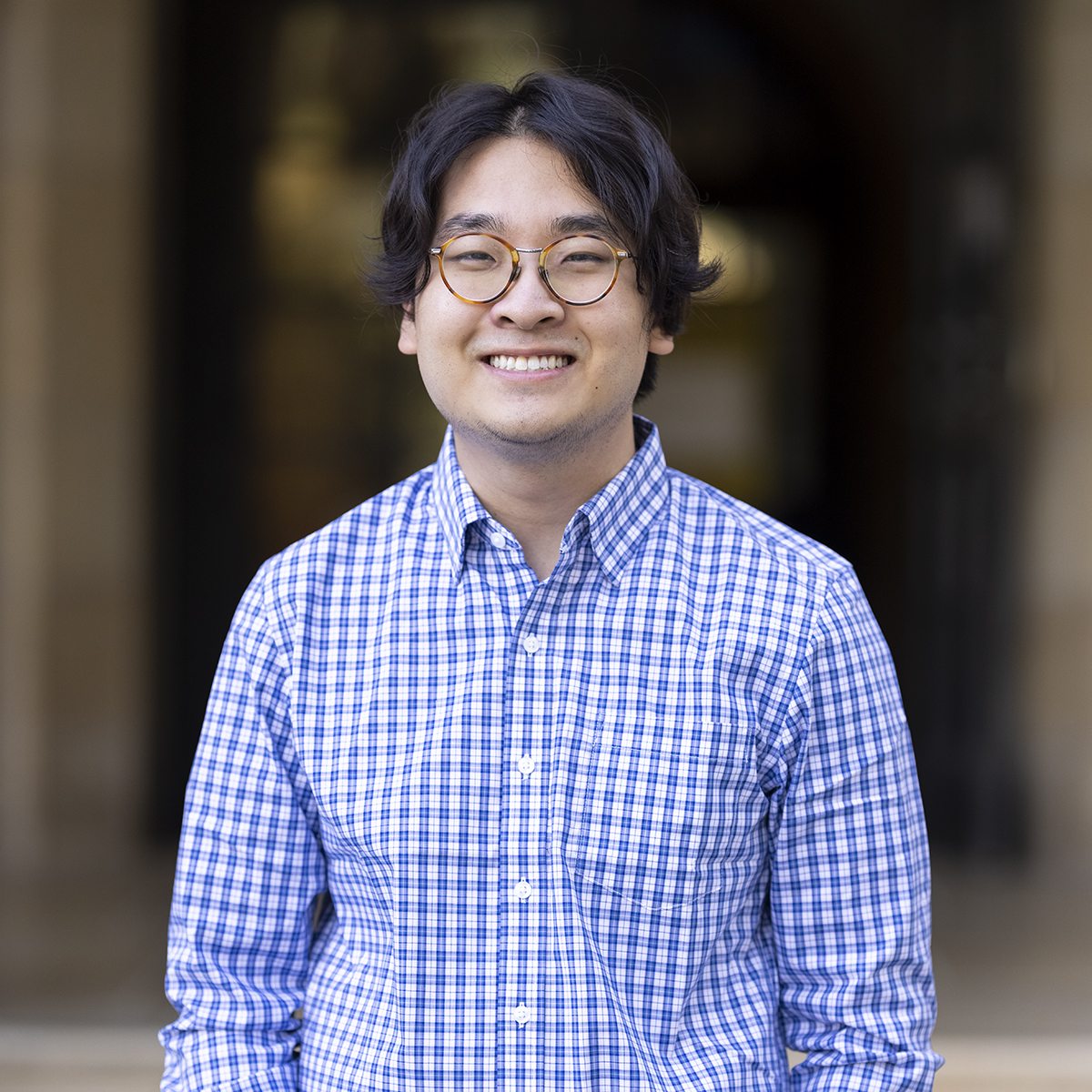Student leaders call for increased collaboration in UCLA coronavirus response

As student learning shifts online because of the coronavirus pandemic, student government leaders are working to increase student input in major decisions. (Daily Bruin file photo)

By Justin Jung
April 7, 2020 11:48 p.m.
Student leaders are calling for more student involvement in UCLA’s response to the novel coronavirus.
Disruptions stemming from the outbreak have forced some students to face racial harassment in online classes, financial hardship and other challenges. In response, the UCLA administration and the Academic Senate have encouraged teachers to use secure access codes, created financial support programs and announced grading changes. However, UCLA’s response to these issues did not gather sufficient student input, said some undergraduate and graduate student leaders.
Undergraduate Students Association Council President Robert Watson has been meeting with Vice Chancellor of Student Affairs Monroe Gorden Jr. to discuss student matters. Additionally, Administrative Vice Chancellor Michael Beck will meet with Graduate Students Association President Zak Fisher later this quarter.
USAC is the student-elected governing body for undergraduate students that controls about $9 million in student fees each year. GSA is the graduate student elected government, which represents nearly 13,000 UCLA graduate students. It also controls about $1 million, Fisher said.
Despite his meetings with administrators, Watson, a fourth-year political science student, said he thinks the administration as a whole has not sufficiently involved students in its decision-making.
USAC’s ability to communicate with the chancellor is significantly less than other student governments’ access to their universities’ chancellors and presidents, Watson said. Chancellor Gene Block usually schedules one 30-minute meeting with the USAC president per quarter. However, Block has scheduled one additional meeting with Watson this quarter.
“When you only have one (quarterly) meeting with the chancellor, something (might come) up after that meeting,” Watson said. “If … something bad happens after that, it’s difficult to communicate with (Chancellor Block) except for over email, and even over email, it’s still sometimes difficult.”
Addressing academic issues
In line with increased communication, Dean of Students Maria Blandizzi has been regularly communicating with USAC by attending weekly council meetings and regularly corresponding over email, said Academic Affairs Commissioner Naomi Riley. Blandizzi is actively working with the council after several Zoombomings in which classes held on the video conference application Zoom, including Astronomy 3: “Nature of Universe” and Chicano 143: “Mestizaje: History of Diverse Racial/Cultural Roots of Mexico,” were interrupted with vulgar messages, Riley said.
The university is responsible for addressing the racial harassment incidents, said Fisher, a law student. The university, as an employer, has a legal obligation to create a safe work environment, Fisher added.
“Students, … students of color, Jewish students (and) students from marginalized backgrounds, can be exposed to that kind of vitriol just for going to class,” Fisher said. “Not to mention the professors and the graduate students and the lecturers, that they can be exposed to that kind of vitriol. That’s not safe.”
Fisher said he thinks that UCLA has not made a sufficient effort in gathering graduate student input before making major decisions, such as the move to online learning.
While the administration’s communication with USAC has improved, collaboration with the UCLA Academic Senate has not, Watson said. USAC appoints about 25 student representatives to the Academic Senate, which is responsible for overseeing academic matters such as degree requirements.
The Academic Senate Legislative Assembly voted March 11 in an executive session meeting to suspend winter quarter final exam restrictions. Student representatives were not allowed to attend the March 11 meeting because it was an executive session, Riley said.
The Academic Senate Undergraduate Council, known as the UgC, voted March 20 to change spring quarter grading policies, Riley said. Student representatives appointed by USAC were present at the meeting and allowed to vote.
Watson asked Academic Senate Chair Michael Meranze on March 23 to postpone the UgC’s announcement on spring quarter grading. USAC published its recommendation on the matter the next day, however, the UgC had already made its decision for spring grades, Watson said.
After receiving USAC’s letter, the Academic Senate leadership discussed its recommendations, Meranze said in an emailed statement. The Academic Senate leadership includes Meranze, Vice Chair Shane White and Immediate Past Chair Joseph Bristow.
“In light of that conversation, Senate Leadership met to discuss the USAC concerns and requests and although we did not agree with their position we did discuss and consider it thoroughly,” Meranze said in the statement.
However, the UgC, which makes policy for undergraduate education, did not discuss the USAC recommendations, said Riley, who sits on the UgC.
Later that week on March 26, the Academic Senate announced that students may take multiple Pass/No Pass classes, but did not implement USAC’s recommendation for universal Pass/No Record grading.
The Academic Senate accepted essentially none of USAC’s recommendations, Riley said. Since departments aren’t required to accept Pass/No Pass grading for major requirements, students taking all major classes do not benefit, Riley added.
“The more that we have demanded and the more that we’ve shown that students are being severely affected, the more that they’ve listened,” Riley said.
Allocating resources
Several UCLA administrative offices are working to provide resources for students in financial hardship.
Blandizzi’s office, the UCLA Economic Crisis Response Team, UCLA Financial Aid and Scholarships, UCLA Campus Human Resources and UCLA Case Management Services are using data collected from a form sent to students to provide need-based resources, said Blandizzi in an emailed statement.
The UCLA Division of Undergraduate Education and UCLA Financial Aid and Scholarships formed the Bruin Tech Fund Grant, providing up to $1,000 for undergraduate students to purchase technology needed for online learning. However, graduate students are ineligible and the deadline to apply was April 1, according to the grant’s information sheet.
“Many (graduate students) are saying, ‘I am a TA (and) I don’t have internet access,’ or ‘I don’t have a computer (and) I don’t have the tools to do my job,’” Fisher said.
UCLA administration created the grant after being told by undergraduate students that the lack of reliable internet connection or computers was preventing them from going home to study, said Vice Provost of Undergraduate Education Pat Turner in an emailed statement.
Watson said he thinks that although the administration has been communicating with his office, USAC was not part of a collaborative effort to create the grant.
In addition to the grant, students can borrow laptops for spring quarter from Campus Library Instructional Computing Commons, Turner said in the statement. While the CLICC computer lab is closed, the CLICC laptop lending service is continuing to receive requests online. The library is considering alternative ways to distribute laptops to students, said UCLA spokesperson Melissa Abraham in an emailed statement.
Graduate students are especially impacted by the economic impacts of the coronavirus outbreak, Fisher said. Graduate students have been calling on the University of California and UCLA for a cost-of-living adjustment for several months because of low stipends relative to the high cost of living.
Following the coronavirus outbreak, Fisher said his office is planning to direct funds budgeted for on-campus programming to the GSA Hardship Fund. UCLA should also be making cash payments to students to help relieve financial hardships, Fisher added.
“I think it’s important that we remember that (administrators) still hold public positions, they’re still accountable to the public, they’re still accountable to the students and the faculty and everyone else,” Fisher said. “Maybe (now) more than ever is a time to collectively raise our voices and demand serious change.”


